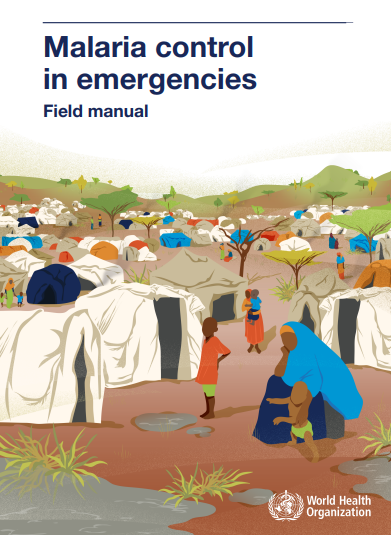Field manual
Humanitarian emergencies are increasing globally with alarming frequency and duration. These crises often cause health system collapse, leaving vulnerable populations without access to essential medical services. In endemic areas, malaria becomes a deadly threat, especially for displaced communities with little prior exposure and no immunity. Without swift action, outbreaks can escalate rapidly, making preventable cases major causes of illness and death.
As emergencies grow in scale and complexity, the global response must evolve. To support effective action, the World Health Organization (WHO) developed this field manual to support malaria response in crisis-affected settings. While challenges like disrupted services and displacement complicate malaria control, emergencies also offer opportunities to coordinate efforts across the humanitarian response, leveraging shared infrastructure and resources for greater impact.
The manual provides practical, evidence-based guidance on prevention, diagnosis and treatment in emergencies and post-crisis settings. Key features include: assessing risk and targeting vulnerable groups; planning and operational solutions; updated protocols for diagnosis, case management and vector control; strategies for integration with other interventions; innovations in research and adaptive approaches; and accessible tools, references and further reading.
Designed for humanitarian actors, health professionals and policymakers, it is an indispensable tool to reduce malaria’s toll, strengthen systems, and build resilience in complex crises.

